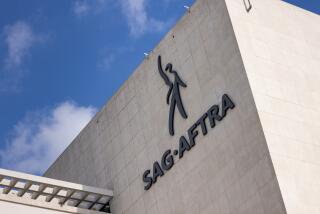Senate Votes 69-27 to Ban Lie Detectors for Workers : Only Private Industry Is Affected
- Share via
WASHINGTON — The Senate voted today to ban most uses of lie detectors in job interviews and the private workplace as “20th-Century witchcraft.”
On a 69-27 vote, the Senate approved a bill co-written by Sens. Edward M. Kennedy (D-Mass.) and Orrin G. Hatch (R-Utah)--normally adversaries on labor-management issues--outlawing about 85% of the current use of polygraph examinations.
The measure does not apply to federal, state and local governments.
Conservative opponents predicted that President Reagan would sign the legislation once a final version of the bill has emerged from a Senate-House conference.
No Veto Expected
“This Administration on this bill is caving like a house of cards,” said Sen. Dan Quayle (R-Ind.), who led opponents of the bill. “This Administration will not veto this bill.”
An estimated 2 million people, most of them job seekers, are required to take lie-detector tests every year, and that number is growing exponentially, said Kennedy, who chairs the Senate’s Labor and Human Resources Committee.
Hatch, the committee’s ranking Republican, said an overwhelming majority of the tests are conducted in brief 15-minute sessions and under conditions that render false results between 15% and 50% of the time.
Misuse of Devices Charged
“I’m sick and tired of the way people are using these devices,” he said. “Some 320,000 honest Americans are branded as liars every single year. That’s a stigma they have to wear every day the rest of their lives and careers.”
Similar but more restrictive legislation was approved by the House 254 to 158 last November.
Kennedy said he planned to meet with Rep. Pat Williams (D-Mont.), chief author of the House version, within the next two weeks to work out a plan for resolving differences between the two versions in a compromise that could win passage in both houses.
“They ban about 90% and we ban about 85%,” he said.
Businesses Hampered
Quayle and other opponents said prohibiting the use of lie detectors will prevent businesses such as restaurants, stores and trucking companies subject to large losses from thefts from screening out dishonest workers.
Hatch, however, said no one has presented any statistics in states where use of the test already is prohibited to demonstrate a higher incidence of theft or embezzlement.
The legislation has been sought for years by civil liberties groups and labor unions, who contend that the devices are used to intimidate workers and weed out union sympathizers among job applicants.
“We applaud the Senate in recognizing that lie detectors can be used in blatant assaults on a worker’s right of privacy,” AFL-CIO President Lane Kirkland said after today’s vote.
Will Cut Harassment
Kennedy said the polygraph has become “to the 20th Century what witchcraft was two centuries ago.”
“This is going to diminish a lot of the harassment that is becoming increasingly evident in workplaces across the country,” he said. “These devices are no longer going to scar people in ways that they and their families can never forget.”
The Senate measure is less prohibitive than the House version in that it allows companies to use polygraphs in investigating incidents of “economic loss or injury” but only under strict regulations to be enforced by the Labor Department.
The House bill bans all uses of lie detectors in private industry, including investigations of specific losses, but exempts private security, armored guard and pharmaceutical companies from coverage.
The Senate today approved an amendment also exempting security and armored car companies.
More to Read
Sign up for Essential California
The most important California stories and recommendations in your inbox every morning.
You may occasionally receive promotional content from the Los Angeles Times.













